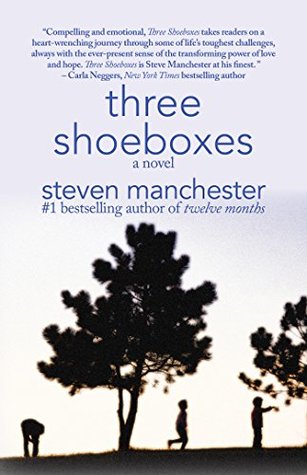
Amir is the son of a wealthy Kabul merchant, a member of the ruling caste of Pashtuns. Hassan, his servant and constant companion, is a Hazara, a despised and impoverished caste. Their uncommon bond is torn by Amir's choice to abandon his friend amidst the increasing ethnic, religious, and political tensions of the dying years of the Afghan monarchy, wrenching them far apart. But so strong is the bond between the two boys that Amir journeys back to a distant world, to try to right past wrongs against the only true friend he ever had.
The unforgettable, heartbreaking story of the unlikely friendship between a wealthy boy and the son of his father’s servant, The Kite Runner is a beautifully crafted novel set in a country that is in the process of being destroyed. It is about the power of reading, the price of betrayal, and the possibility of redemption; and an exploration of the power of fathers over sons—their love, their sacrifices, their lies.
A sweeping story of family, love, and friendship told against the devastating backdrop of the history of Afghanistan over the last thirty years, The Kite Runner is an unusual and powerful novel that has become a beloved, one-of-a-kind classic.
*May Contain Spoilers*
I should have known after I read And the Mountains Echoed that The Kite Runner would be a great book. Khaled Hosseini does an amazing job crafting a story that is both hauntingly beautiful and powerfully terrifying. To be honest, I was nervous to read it before because I'd heard about the brutality that moves the book forward, but overcoming that uncertainty rewarded me with a story that will stay with me.
The main character, Amir, isn't the most likable or relatable, but for half of the book, he is a child who doesn't know better. Or, at least, I found myself giving him that excuse. He's a little cowardly, yet intelligent. He's a beautiful writer but suffers from selfishness. He loves his best friend, Hassan, but still recognizes that, in society, Hassan is beneath him. However, I think Amir's best trait is his guilt. Though it takes Amir a long time, years actually, Amir does get the chance to make up for everything wrong that he believes he did as a child. Emphasis on the 'as a child' phrase. As a reader, there's not as much blame to cast on Amir as his character thinks. In the face of adversity and evil, a young boy doesn't have much of a chance. And this is what is haunting about Hosseini's writing: the morally gray area that his characters live and die in. As Amir shares the truth of his childhood from a present-day point of view, readers will see that as a child, he didn't have as much power as he thought. Therefore, his lack of bravery and courage won't be seen as marks against his character, but rather as traits that had not developed yet. When those traits do appear, as an adult back in Afghanistan charged with rescuing another young boy who is being abused, Amir would choose death over inaction, demonstrating that he has evolved into the man he always wanted to be.
The plot of this novel begins with Amir's life as a young boy and how he grew with feelings of personal disappointment. When Afghanistan becomes really dangerous, Amir leaves the country with his father to make a new life in the U.S. After he marries and settles into his adult life, Amir learns that his favorite family friend from childhood is dying and travels back to his home country. There he learns of his childhood best friend's death and the tragedy of his son. With everything to lose, Amir chooses to try to save the boy in order to pay for his past sins of not saving the boy's father. The combination of Hosseini's writing style with the realistic nature of this book, marking it as almost autobiographical, gives The Kite Runner a power that condemns, forgives, and overcomes. Though I want to say I'd recommend this book to everyone, there are a few graphic scenes that make it inappropriate for all readers. Though it truly is an extraordinary book of friendship, love, and atonement.
Rating: 4.5/5 Cups












